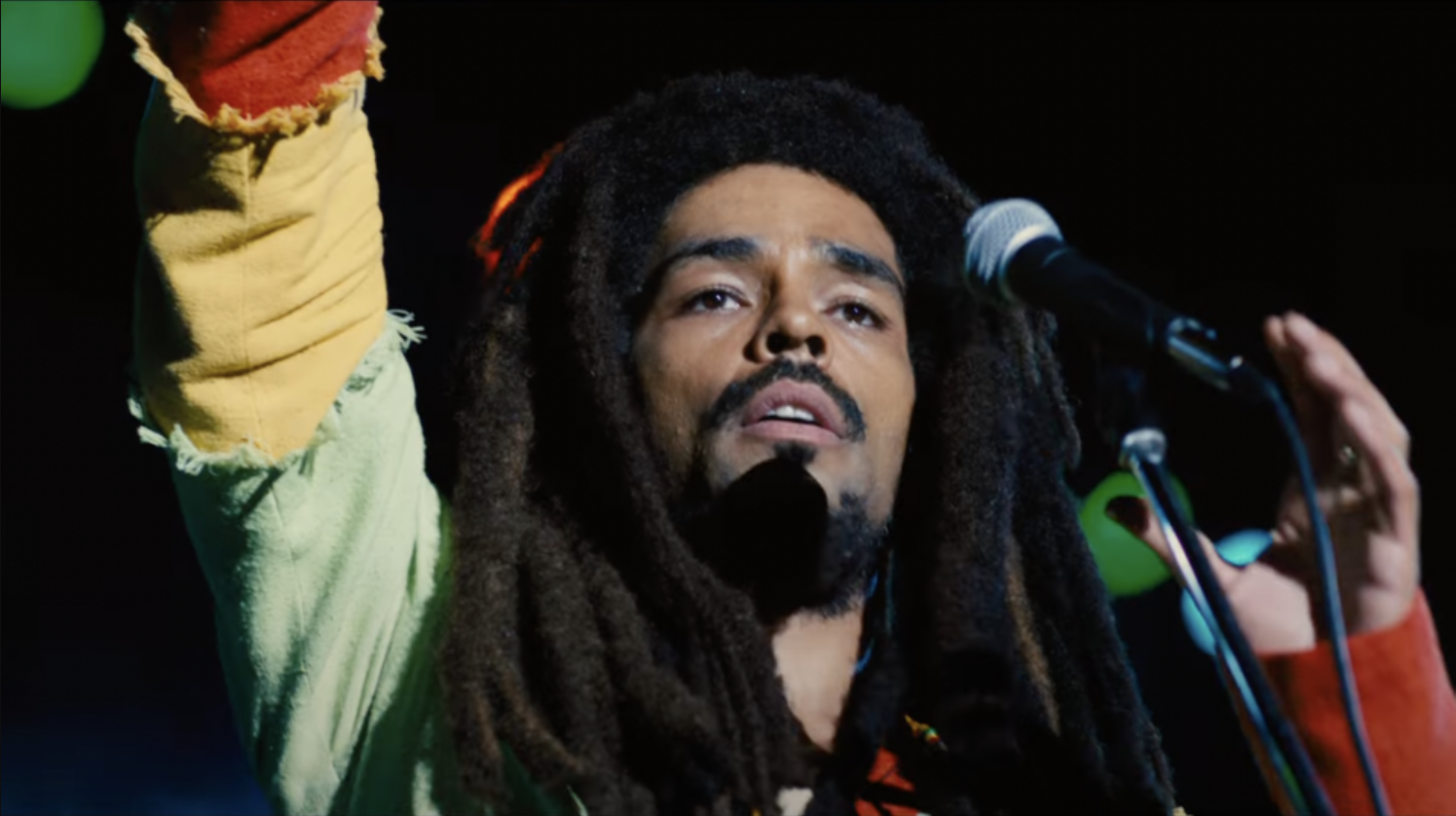Bob Marley appeared on the big screen this Valentine’s Day in his biopic, “Bob Marley: One Love,” and as somebody who grasps at any opportunity to watch biopics about popular figures in music, I am here to tell you what I thought about it.
The film revealed a behind-the-scenes narrative of his music that sought to bridge political and social division, integrating historical context and personal details about his relationships with others.
To preface this review-style writing, I will disclose that I was not previously familiar with the depth of Marley’s music, the conflict present in Jamaica at the time of his popularity, or the tragic events that occurred as a result of this conflict within his inner circle. Many of the references included in the film were integrated stylistically under the assumption that viewers would be able to identify characters, timelines, songs and other cultural background information. I was more entertained by the fact that, with each scene, more of his children (from various women, I may add) kept popping up out of nowhere with no introduction. I believe that this tainted my ability to enjoy the film fully, and therefore I will explain why.
With other biopics, such as “Rocketman” (2019) about Elton John, the film guides viewers through the story of the star’s life. This helps to explain context regarding their passion, unfortunate circumstances that the individual had overcome in rising to fame or simply how they met the talented peers they decided to pursue work with.
“Bob Marley: One Love,” began immediately at the height of Marley’s fame. By starting at a pivotal point in his musical career, the film captured the audience effectively but didn’t quite explain why the events taking place were so important. Various users on the popular movie reviewing app Letterboxd left comments like, “I liked it a lot but I feel like it deserved a bit more depth – more about his childhood, his way to become a legend of reggae, his life before this,” “It felt like most of Bob’s life was skipped over and the film just didn’t go anywhere” and “Incredible actors, plot where??” My roommate, on the other hand, felt that the film was manipulated by Marley’s son to only show certain aspects of his fame, leaving out the many instances of adultery.
I definitely agree that the historical context provided in the film brought an abundance of light to Marley’s character and mission behind his music, that its intent was backed by a passion for peace. The violence shown in the film provided background information about the risks involved in showcasing his music to the world. Viewers were able to place themselves inside Marley’s mind when performing, portraying the anxiety felt by all characters involved whose safety was threatened. I enjoyed the small moments of happiness and connection shared between the characters, as well, as they were much-needed in lightening the mood. If you asked me about specific dialogue and plot-points that took place, however, I could not quote a single thing.
Overall, I felt that this movie, while extremely culturally important, could have been artistically styled in a way that was more accessible for viewers to understand. I might need to watch this again, or maybe three more times, to understand the plot on a deeper level.




